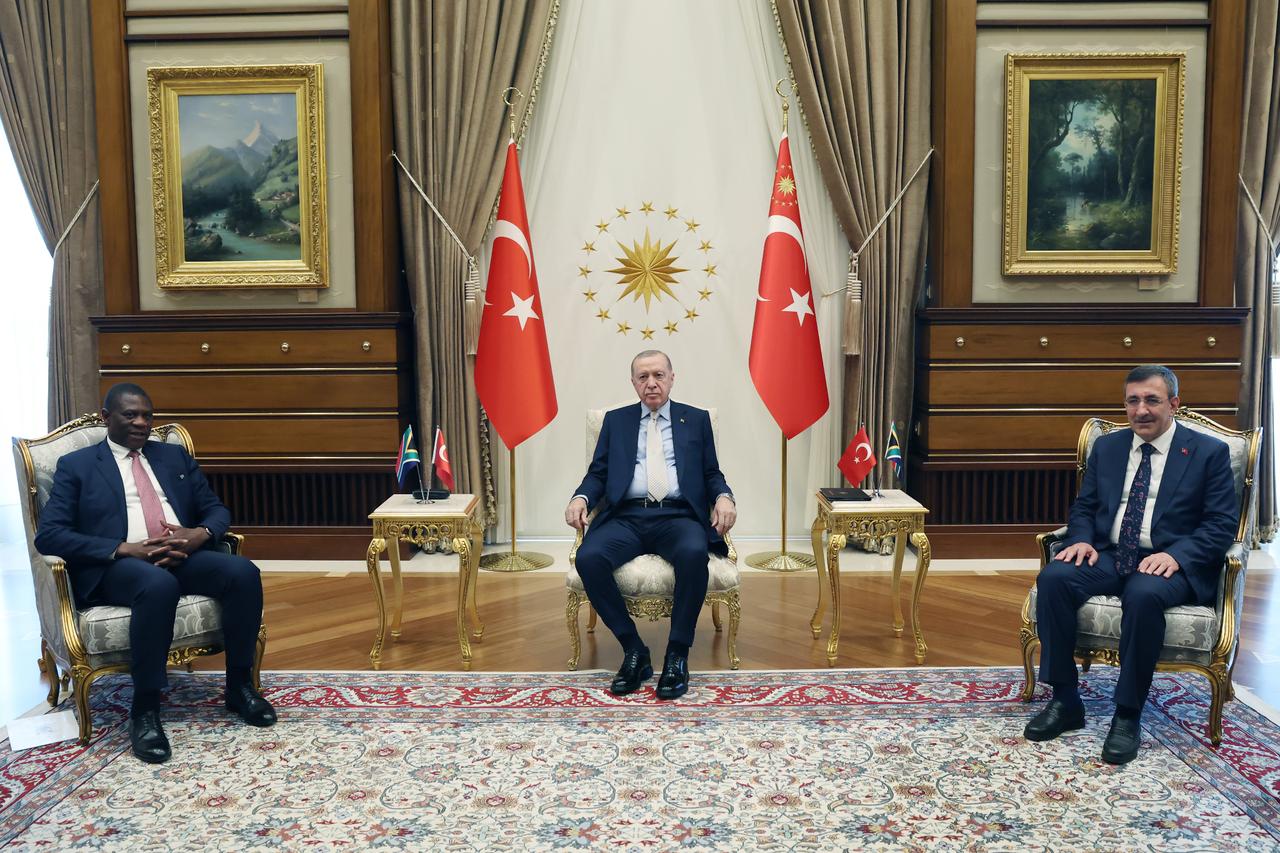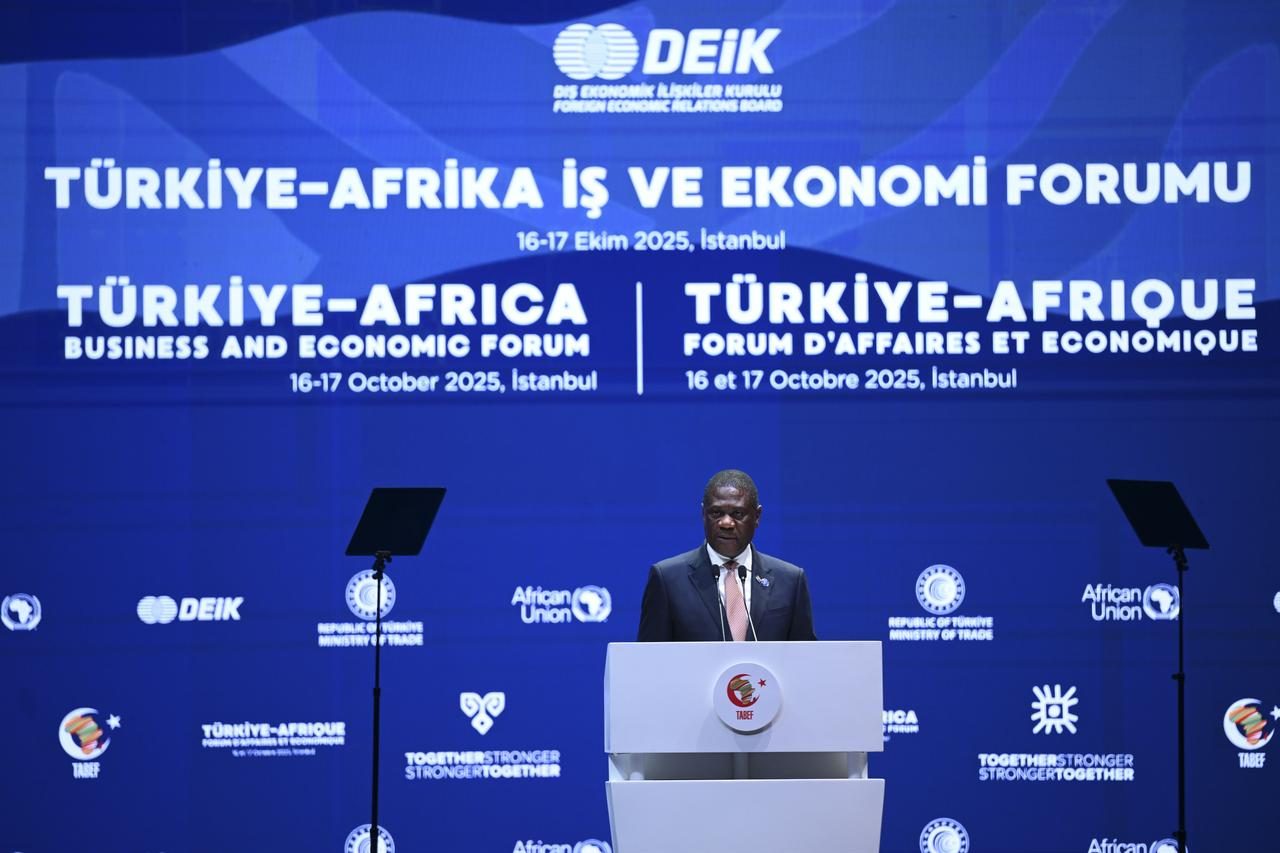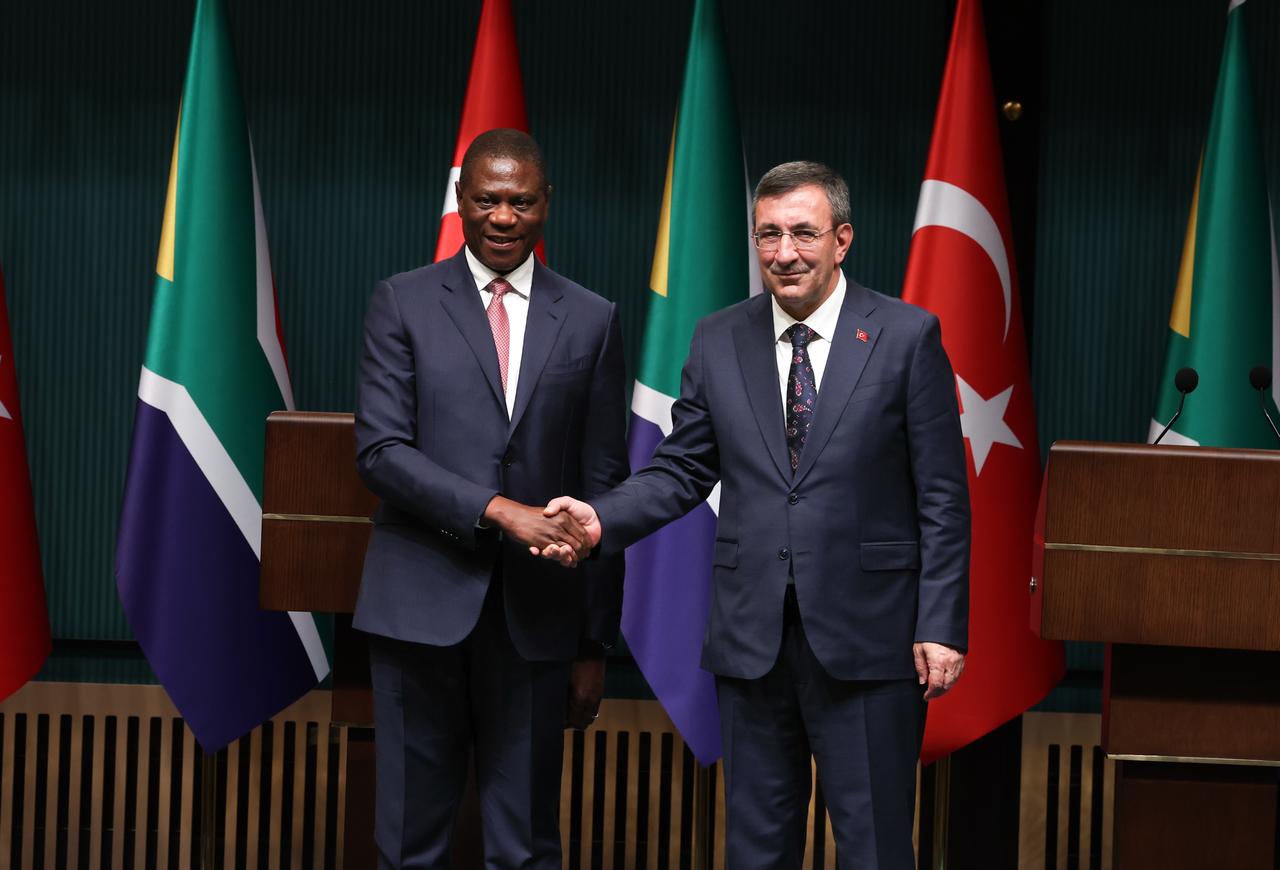
South African Deputy President Paul Mashatile called for deeper collaboration between Turkish and African investors during a visit to Türkiye this week, as the two nations formally activated a bilateral commission that had been agreed upon more than a decade ago.
The Bi-National Commission between Türkiye and South Africa, originally established in 2012, officially became operational on Oct. 15, marking what Mashatile described as a new chapter in political, economic and trade relations between the nations.
"I was here to formally launch this commission," Mashatile told Anadolu Agency. "Now there is a permanent mechanism in place to regulate relations between the two countries."
Mashatile made the remarks on the sidelines of the Türkiye-Africa Business and Economic Forum in Istanbul, an annual gathering organized by Türkiye's Ministry of Trade, the African Union and the Foreign Economic Relations Board that has convened without interruption for 10 years.
The deputy president emphasized that the private sector must take a leading role in bilateral cooperation, noting that the forum mobilizes governments to address issues including financing, skills shortages and investment climate.
"The role of the state is to create an environment where business people can trade and establish partnerships," Mashatile said.
With the next forum scheduled for 2027, Mashatile said South Africa wants Turkish and African investors to work more closely together in the intervening period.

South Africa is targeting a major transformation of its energy sector, an area where Turkish expertise could prove valuable, according to Mashatile.
"Energy will be the main area for us," he said. "We plan to produce more energy. We need to build transmission lines and harness renewable energy sources like solar and wind. Türkiye has most of these technologies, which is an important point."
Turkish companies are already familiar with the South African market and operate across various sectors, Mashatile noted. Among the agreements signed in Ankara were commitments to skills training and skills transfer, alongside memorandums covering higher education cooperation, free trade zones, investment promotion and technology sharing.
The deputy president stressed that South Africa's trade objectives extend beyond simply increasing export volumes.
"We don't want to just export raw materials and buy processed products from Türkiye," Mashatile said. "We want products to be manufactured in South Africa and create added value here."
Logistics challenges also require resolution as part of the broader economic partnership, he added.

Mashatile positioned South Africa as more than a trade partner for Türkiye, describing the country as a gateway to broader African markets.
"If Turkish companies are positioned in South Africa, access to opportunities in the Southern African Development Community region and Sub-Saharan Africa becomes possible," Mashatile said.
The deputy president highlighted South Africa's upcoming role as host of the G20 Summit in November, noting that Turkish President Recep Tayyip Erdogan will attend and that Ankara's support holds great importance for South Africa.
Mashatile expressed appreciation for international backing of South Africa's genocide case against Israel at the International Court of Justice, noting that Türkiye is among the countries now supporting the legal action.
"We appreciate the support we are receiving," he said. "Our case is now also supported by other countries, including Türkiye."
The deputy president made clear that South Africa's commitment to peaceful conflict resolution extends beyond Palestine, citing President Cyril Ramaphosa's involvement in Ukraine and the Democratic Republic of Congo, as well as his own recent efforts in South Sudan to facilitate peaceful elections by the end of next year.
"We will continue, but you know, we can only do what we can," Mashatile said.
Regarding potential economic consequences of South Africa's stance on Palestine, Mashatile acknowledged risks but remained resolute.
"Israel is not one of South Africa's largest trading partners, so it has not been a problem," he said. "Of course they are not happy that we support Palestine, but we support many countries where innocent people are being oppressed, where women and children are being killed."
He continued: "We know there are other powers in the world that are not happy with what we are doing. And we may face negative consequences. These days, tariffs are being used as a weapon against those who don't agree with you. But we are determined to support innocent people who are under pressure, seeking freedom. We advocate for justice and peace. You're right, this will bring some difficulties, but we have chosen this path."
Addressing questions about the death of South Africa's ambassador to France, Nkosinathi Emmanuel Mthethwa, amid claims of "suspicions" surrounding the circumstances, Mashatile described the incident as tragic.
"When I heard of his death, I was shocked too," he said.
French authorities are investigating the cause of Mthethwa's death, according to Mashatile, who said South Africa has begun cooperating with French officials to uncover the truth.
"A lot of speculation has been made, but our stance is to allow these processes to continue," Mashatile said. "We will get the results and find out exactly what happened."